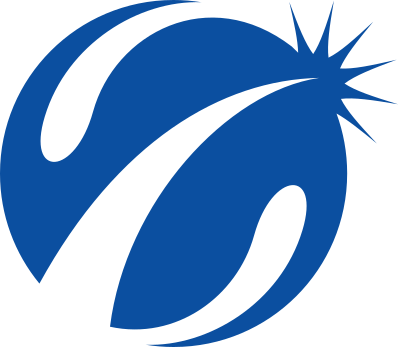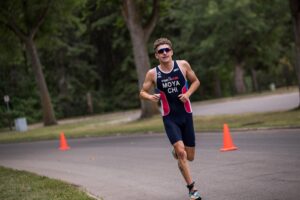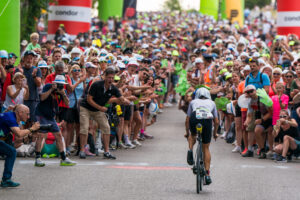A star is reborn
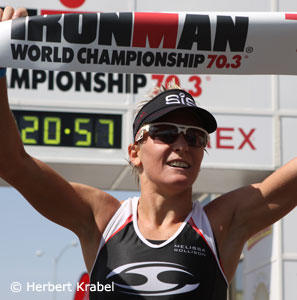
Melissa Rollison did her first triathlon just 18 months ago and earlier this month she defeated a great field on a tough course to win the Ironman 70.3 World Championship. Not unlike 2004 ITU World Champion and three-sport Olympian Sheila Taormina, Rollison came into swim-bike-run with an ace in her hand. Taormina was an Olympic gold medalist in the 4×200 meter swim relay and Rollison was the Australian women’s steeplechase record holder and an internationally ranked distance runner. Both came to triathlon after a hiatus from their original sport (Taormina had retired and Rollison had been injured) in order to get back in shape with some cross training.
After getting some swim coaching early this year from coaches near her family’s home on the Gold Coast, Rollison turned pro and hit the US Ironman 70.3 world like a comet – winning 70.3 races at Muncie and Vineman in record times with a blazing run – twice running 1:16 splits, among the very best ever posted. But the Las Vegas 70.3 Worlds – competing for the first time against superstar Julie Dibens was the acid test. Rollison passed with flying colors, holding Dibens to a 2 minute 30 second advantage after the bike and then posting a race-best 1:21:14 run on the hills of Henderson — 3:13 better than next-best, 4th place Heather Jackson, and good enough to hit the finish with a 5 minute, 57-seconds margin over runner-up Karin Thuerig of Switzerland.
Slowtwitch reached Rollison at home in Australia and conducted this interview via email.
Slowtwitch: After all your achievements and struggles in running, what did this world championship in your very new sport of triathlon mean to you?
Melissa Rollison: Winning the world champs was an amazing feeling and something I've been dreaming of since I was 11. But in a different sport. I thought when I was 12 when I won my first national title in running that that one day I'd be the best in the world. I guess that is every kid’s dream, but I knew I could get there. My Dad always told me that if I thought I could do it I could. Each year I got faster and stronger. I had some awesome results and records including the world junior record [in the steeplechase.] The 2004 Olympics almost looked like a certainty. But then things went downhill fast.
ST: What happened to cause that downturn?
Melissa: In 2002 I changed my coach [to retired Moroccan distance running superstar Said Aouita] and I moved from the Gold Coast to Sydney — but we spent much of the time in the US. I was pushed physically and mentally. I was also told, for the first time in my career, that I was "no good" and that everything my Dad had told me was wrong. No longer was I the positive happy runner I was back on the Coast. My results all came down to what my coach told me — and he told me I was no good over and over so that's exactly what I was. I was stubborn and wouldn't leave. I was convinced I needed this coach. I became mentally and physically weak and injury prone. I battled on for another 8 years. The 2004 Olympics passed. The 2008 Olympics passed. I was injured for both. I thought about the 2012 Olympics, but I knew if I missed them as well due to injury it would mentally destroy me. It’s been a hard battle to keep pulling myself back together.
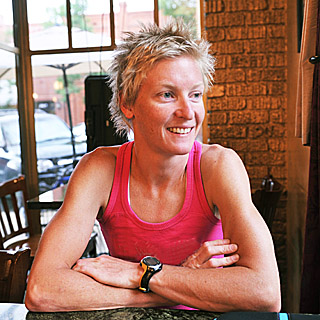
ST: What brought you out of that long negative spiral?
Melissa: When I started cycling [to cross train to regain fitness out of injury] I really enjoyed it. And I was good at it. I didn't think too much into what I could achieve in triathlon at the start. I just wanted to enjoy training, being fit and healthy and happy again. But winning in Vegas has now definitely made all that pain and struggle I went through in running all worth while.
ST: While you have raced and won three big Ironman 70.3 races without really knowing your rivals and what they had done, how much were you aware of competitors like Julie Dibens, Karin Thuerig, Jo Lawn, Leanda Cave, Heather Jackson?
Melissa: Julie Dibens was the one I thought would be my main competitor. Probably because I hadn't raced her before. The other girls I have come across in my races leading up to Vegas. That said, I knew all the girls would be in their best shape and all trying their best to win. I knew Julie is a super strong swimmer/cyclist so my aim was to try to limit the damage she did to me in the first two legs. My target was to get off the bike no more than 4 minutes down. Coming into T2 I wish someone had told me I was less than 3 minutes down because I would have taken the time to put my socks on. I paid the price the days after the race but my ripped up feet somehow didn't bother me during the race.
ST: What did your coach (and boyfriend) Jared Hauschildt do to prepare you for this race? In particular, the hills on the bike and run were much tougher than anything you had raced before, so did he re-gauge your expectations for pace on the run?
Melissa: Yes. We knew the run would be hilly so although I still clocked every mile on my watch it didn't really mean much. Some miles were fast because it was mostly downhill. Then some were slow because of the long uphill. Jared just told me not to go out too hard and not try to catch up the lost time immediately and to just run as fast as I have to to win. The run course was three laps so I could constantly gauge where I was in comparison to my competitors. Also I knew Jared would be on every corner (he wasn't at my three races leading into Vegas) yelling out splits (if needed) so it wasn't as important to know exactly how fast I had to run prior to the race.
ST: Some great Iron distance triathletes never get a good swim. But you seem to have picked it up very quickly. You swam 28:27 in Las Vegas – 3 minutes down to Leanda Cave and Julie Dibens, but faster than 70.3 veterans Linsey Corbin, Heather Jackson, Melanie McQuaid, Lesley Paterson, and 4 and one half minutes faster than Karin Thuerig. Who is responsible for your quick adaptation to a fast swim stroke?
Melissa: Well that's a compliment… I still think I can't swim. But I guess I have improved a lot from when I first started. I have [swim coaches] Zane King and Brendan Capell [in Australia] to thank for that. I started with Brendan in January 2011 and then Zane in March. Zane has paid a lot of attention to my stroke. When he first saw me swim he was amazed at how terrible my stroke was but how I somehow managed to still move through the water at a reasonable pace. It wasn't long till he realized it was just my fitness and determination that got me anywhere. I was working 100 times harder than anyone else in the pool for the same gain. Just a few simple pointers helped me to improve dramatically.
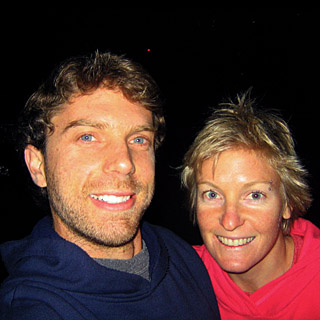
ST: What was your strategy going in to deal with fast swimmers and the bike strength of Julie Dibens?
Melissa: The same as any other race. Try to get the best start I can. Swim as hard as I can. Bike as hard as I can. Then do what I have to on the run to win.
ST: Were there any points where you were hurting, discouraged or doubting you could win?
Melissa: Yes. Only once and very briefly. At 65k on the bike, I was climbing a never ending hill and I thought I had bonked. I was hurting. A thought went through my mind that I was done. Julie was up ahead powering on, gapping me and I had nothing. For the first time I thought about the run. I thought I wouldn't be able to run when I got off the bike. But I quickly pushed the thought out of my head, told myself everyone else was hurting too and I've never had a problem running off the bike so this wouldn't be any different. Right then I made it to the top of the hill, I told myself I was feeling good and I put my head down and rode as hard as I could. Not knowing I was then making up time on Julie.
ST: Have you been contacted by any new sponsors? If so, who?
Melissa: Yes. My manager deals with that side of it thankfully so I can just focus on training and racing.
ST: How did you and Jared celebrate?
Melissa: Jared fell asleep for a couple of hours when we got home. He was exhausted, mentally and physically because he put so much time and energy into preparing me for the race. And then during the race he was running everywhere trying to see me as much as possible. The next day we spent almost the whole day at a coffee shop replying to emails, media requests and Facebook messages. But that night we finally got out and checked out the strip in Vegas. Then the next morning we flew to San Fran and spent a couple of nights with Barb and Pat, my home stay hosts from Vineman 70.3. They are awesome so I was pretty excited Jared got to meet them. Then we hired a car and went camping at Yosemite and Lake Tahoe. We hiked up the mountains, saw some beautiful waterfalls. Jared swam in a freezing lake. It just looked so beautiful he couldn't resist. And we hadn't showered for a few days, so that did the trick.
ST: What have you heard from your old running rivals, coaches, friends?
Melissa: All my running mates have been following my progress. They've been awesome. They are all so happy for me. They know I've been struggling with running for a while now. so they’re stoked I'm doing well in tris.
ST: Have any triathletes become your friends?
Melissa: The girls have been amazing. They're all so friendly. Leanda Cave, Angela Naeth, Heather Jackson, Chrissie… they've all be very nice. But Kelly Williamson, Tenille Hoogland and Caroline Gregory have really gone out of their way to welcome me into the Tri world. And my fellow Aussies — Maddy Oldfield and Michelle Wu – are now great friends.
ST: After your long pursuit of running success — and all the ups and downs that went into it — do you sometimes wonder if you are dreaming this quick rise to triathlon success?
Melissa: Sometimes… Sometimes I think about it and say to myself… I can't believe I finally did it. I thought for years and years as a runner I could do it but with all the setbacks I started losing faith –and started thinking maybe I'm not gonna get there, maybe I'm not supposed to get there, maybe it's just not gonna happen. That thought devastated me. I couldn't give up.
ST: What is it about triathlon that you like? Makes you comfortable?
Melissa: I like the fact that there is three sports to train for. It's always interesting. And also I think there is a lot less chance of getting injured as you have to balance the load over the three disciplines. If there is a slight niggle, you don't have to feel guilty about missing a run or a swim. Because you are doing so much other training, it is never a complete rest.
ST: What have your mum and dad said about your big splash in this new sport?
Melissa: I think they are pretty shocked. They knew how bad I wanted to be the best runner in the world and they watched me battle through injury after injury and coaching problems. They never told me to give up, but I often thought that's what they were thinking towards the end. I think they never told me because they knew I wouldn’t listen. I think they are very excited I've finally made a breakthrough. Well, they flew all the way to Vegas to watch me, so I'm sure they are stoked I'm doing well.
ST: OK, how many people have offered to coach you? And what have you told them?
Melissa: No one. I'm sure there are some fantastic coaches out there but I think I've made it clear I don't want a coach. I'm happy doing what I'm doing.
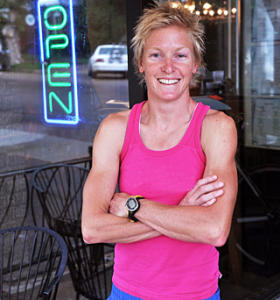
ST: It seems as if Jared has become, I presume, the best coach you've ever had?
Melissa: Jared doesn't just tell me what to do in regards to my training. It's more like "what do you think of this?" I have input into my program and nothing is printed on paper as to exactly what I'll do each day. We have a basic program each week that we are constantly tweaking depending on race schedule, how I'm feeling, how I've pulled up from the previous days training and then also depending on where I am or what else is going on in my day/week. Jared isn't my coach. He is my fiancé and my best friend who is doing his best to help me become the best triathlete I can be.
ST: What sort of attention have you received for your World title? In Australia? From friends? Family? From runners? From sponsors? From folks in the triathlon world that is new to you? Who among all of these have been most supportive?
Melissa: My cycling club have been very supportive. They've been watching closely since I first started riding with them and they were the first to send me congratulations and put on a get together when I returned to Australia. My mates, my family, running friends, they've all been following my progress with great interest. My new competitors have also been amazing. And my sponsors have been awesome. I never could have done it without them. When I first started I didn't even have a bike. I'd snapped it in a crash just weeks before my first Half IM and couldn't afford to buy another one. I'd never even done a triathlon so who would want to sponsor me? But Russell Hinward from Connectel got behind me. He bought a bike for me to use until I could get my own. I raced on this bike in my first race and won. And then with only one race under my belt Avanti starting helping me. Scody backed me before I'd even switched from running to Triathlon. They have all given me a huge amount of support. And then my manager, Phil Stoneman, has spent countless hours helping me out.
ST: You of course should take the time to enjoy what you have done. But do you have some idea of what you might try next? Is there some short course – or some Ironman — in your near or far off future?
Melissa: I am racing an Olympic distance race next month here at Noosa. And then another shorter race (1km, 30km, 10km) in Sydney a couple of weekends later. I'd like to be competitive over the shorter, but at the moment my swimming might hold me back. I will really work on my swimming over the next few months while I'm back in Aus. I do really like the 70.3 though. I like the fact it's non-drafting and that you have to be super strong on the bike. Doing these shorter races will really help my swim for the longer events.
ST: In the recent past, persons who have won the Ironman 70.3 Worlds have received a slot for the next year's Ironman World Championship in Kona. Will you take a slot if it is offered? Will you go to Kona this year to see what it's all about?
Melissa: I won't go this year to watch. That would be awesome, but I'll be back at home watching it on TV instead. Next year… Maybe… We'll see…!
ST: What was the most important thing you have learned about triathlon in this whirlwind year?
Melissa: The most important thing – definitely — to pay attention to where I rack my bike in transition. I spent 4 minutes looking for my shoes in T2 last year in a race. Also, I think I've learnt my lesson on trying to make up time in transition by not putting my socks on. I certainly paid the price for that mistake the days after.
ST: What was the most important thing you learned about yourself this year?
Melissa: Consistent smart training wins the race. I've learned how to listen to my body. When to take a break. When I should just sleep in and allow my body to rest. One day in Boulder I just didn't get out of bed… I told my home stay host I was riding at 6 AM followed by a short run off the bike. I then had swimming at 11 AM so I had to leave early. I didn't get out of bed till almost 10 AM.. My body just said enough. The rest of the week I felt great.

